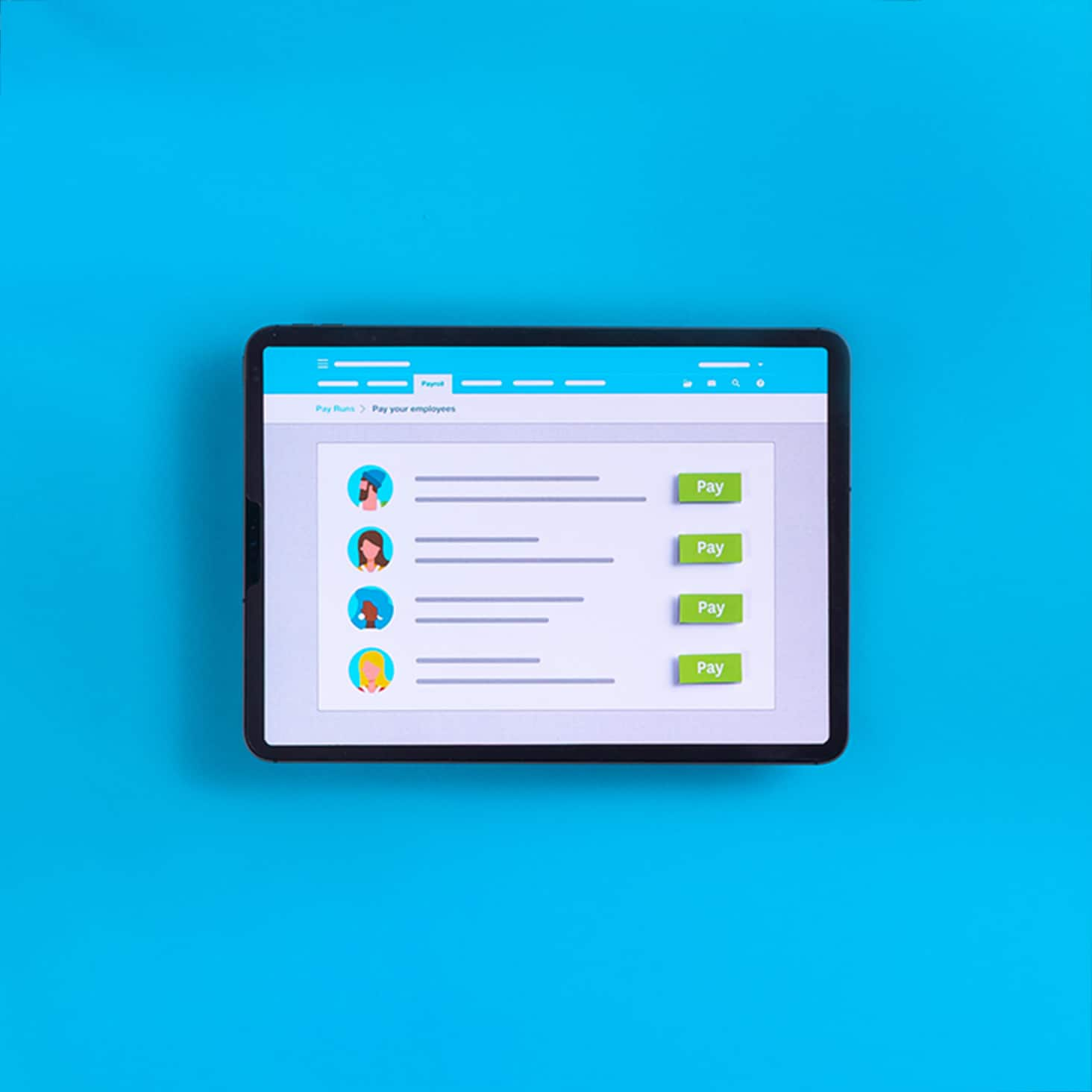Payroll compliance for an employee’s first day
Whether you’re hiring your first employee or your fortieth, compliance matters. But how do you ensure you’re compliant?

Published Wednesday 23 March 2022
Compliance is a legal requirement
Before your new employee even arrives for their first day, there’s a lot to do. Most of the HR work will have been completed – contract signed, files updated. Now the focus is on payroll.
As we’ve discussed in other payroll guides, there’s more to payroll than just paying your employees. Payroll covers hiring and firing, salary, leave dates, benefits, bonuses and other topics.
It's also directly linked to taxes and tax accounting. That means it’s covered by legislation. So if you don’t follow the law exactly, you could be prosecuted. And it’s not just tax law. From completing the right forms to making the correct overtime payments, payroll is covered by laws every step of the way.
In this guide we’ll look at what payroll compliance involves. That way you and your new hire will be able to hit the ground running.
Start with the basics
The first thing to do is add the new employee into your system. You may have stand-alone payroll software. Or it might be incorporated into your main accounting software. Either way, you need to cover the basics:
- Confirm new hire is an employee of your company: If they’re an independent consultant or contractor they’re not your employee.
- Check all personal details: Including date of birth, address and marital status. This affects the way an employee is treated for tax purposes.
- Use the correct salary information and tax codes: Include any contractual bonuses and benefits – these must be declared for tax purposes.
- Input the correct working hours: Get these right for the new employee – part-time or full-time, flexible or fixed hours.
- Have the correct bank account details: Check this in writing with your employee. If you use the wrong information you could end up paying the wrong person. And that can be expensive to put right.
- Set the details to go live on their start date: Make sure their payment dates are correct too – they are probably the same as everyone else in your business.
Enrol your new employee
In some countries it’s a legal requirement to enrol new employees into your pension or superannuation scheme.
In other countries it’s optional, but many employers do it anyway. It can be a tax-efficient way to make your business more appealing to potential job applicants.
It can also be a compliance minefield. Contributions from you and your employee will vary depending on their age, seniority and salary. Any mistakes can have consequences long into the future.
Government websites often have useful advice. Check them first and you’ll get an idea of what’s required to run your own scheme properly.
Think about the details – five questions to ask yourself
We’ve mentioned the basics of payroll compliance that apply to all companies. But there are some issues that will apply only to companies like yours. For example:
- What is your employee turnover? In some fields of business, casual or temporary employees might be present for just a matter of weeks. In others you might have the same employees for many years. Different situations mean you’ll need to focus on different aspects of payroll accounting.
- How do you handle expenses? Whether it’s travel claims or entertainment, check the local laws governing employee expenses. Some things are allowed, others aren’t - and the differences won’t always be obvious.
- Do you pay your employees in cash? It’s rare these days, and most tax offices try to discourage it. But there’s nothing wrong with paying your people in legal tender. This means you’ll need extra security, though. It also means your accounting systems must handle cash accounts.
- Do your employees do overtime? This must all be accounted for, especially when it happens during weekends or public holidays.
- Do you fully understand local legislation? If you employ people in different countries, you have to pay them according to local laws. Make sure you’re up to speed with things like minimum wage, employee tax reporting, and maternity and paternity leave.
These are just a few of the finer points of payroll compliance. If you have any doubts, get professional advice. Business advisors, local chambers of commerce and accountants are all good sources of advice.
Always talk to your accountant
You may have discussed your new hire with your accountant already. In fact this new employee may be part of your business plan, drawn up with your accountant’s help.
Alternatively you might have got this far without the advice of an accountant. In that case it’s never too late to hire an accountant.
Unlike most business owners, accountants have to stay up to date with accounting laws. That includes compliance. This means your accountant should have a much deeper insight than you do.
When it comes to hiring new people, an accountant can check that you’re doing everything right. If there’s anything unusual about your business situation, your accountant is the one who can tell you – and help you fix it.
Consider outsourcing payroll
You could outsource the work to a company that specialises in payroll. This is quite common for businesses with up to 50 employees.
It can save you time and overheads, but it doesn’t solve every problem:
- You will still have to provide accurate information about your new employees
- You will be one step removed from the person working on your payroll, which makes it harder to check
- Even if you outsource payroll, it’s still your legal responsibility to get it right
There are pros and cons to this approach. Think carefully before deciding whether outsourcing payroll is best for you.
Use payroll software that helps you
If you’ve decided to keep it in-house, make sure you use software that helps simplify the work. It should be:
- Easy to use: Check customer reviews and discussion forums, to find out how intuitive it is.
- Suitable for your location: Make sure it can be set up to comply with local laws.
- Connected to your accounting software: You don't want to have to enter the same information twice. Some accounting software packages have payroll built-in, others have it as an option.
- Cloud-based: If the software is online, you can access it from anywhere at any time. And this means it will always be up to date and your accounting data will always be safely stored.
Ask for recommendations from business associates, accountants and suppliers. Don't rush the decision, because good payroll software will stay with you as your business grows.
Talk to your new employee
When your new hire turns up for work, there are basic things you’ll need to talk to them about. These include introducing them to colleagues, discussing health and safety and showing them around the office. Find out more in our hiring guide.
But make sure you talk to them specifically about compliance too. That includes their responsibilities, such as:
- informing you if their personal situation changes in any way (such as address or marital status)
- keeping all receipts for allowable business expenses and travel costs
- maintaining records of any overtime they do – this is your responsibility too, but it helps to double check
- fulfilling any obligations in their employment contract with you
Compliance makes life easy for you – and the tax office
One of the biggest problems small businesses have is complying with employment legislation. That's especially true of payroll. So don't be afraid to get help. Ask for advice, and choose the right software if you're not outsourcing the work.
Compliance starts on the first day of your new employee's work – if not earlier. Get the payroll aspect working smoothly, and it'll save you headaches later on.
It will also make things easy for the government – the tax office in particular. Payroll compliance means you'll have all the information you need to complete and return tax forms on time.
So compliance will save you time and money. That's true from day one right through to the end of your new employee's time at your business.
Make payday a better day
Xero Payroll eliminates the stress of payroll compliance by reducing manual calculations and errors. Automate the process and get time back.
- Pay and deductions are calculated for you
- Payslips are created automatically each payday
- Supports simple online tax reporting

Disclaimer
Xero does not provide accounting, tax, business or legal advice. This guide has been provided for information purposes only. You should consult your own professional advisors for advice directly relating to your business or before taking action in relation to any of the content provided.
Start using Xero for free
Access Xero features for 30 days, then decide which plan best suits your business.